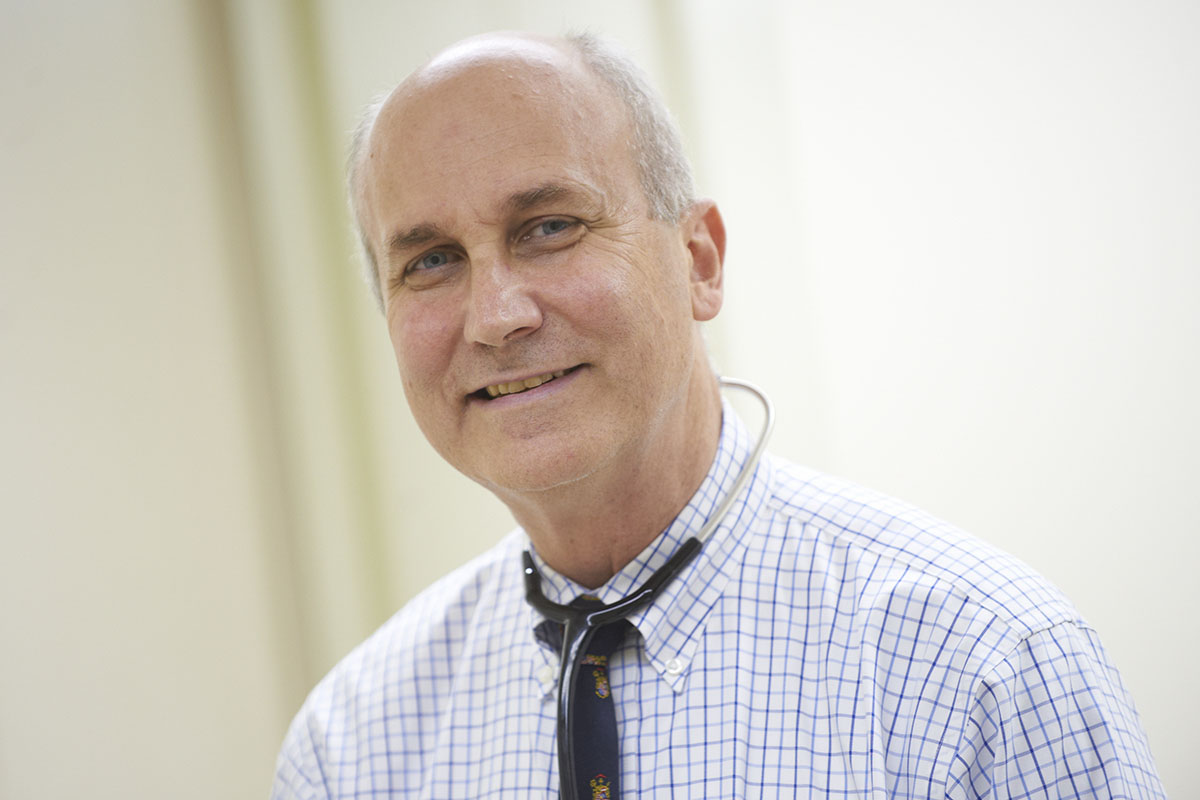
Rich Delgrosso found the lump while shaving. It was on the left side of his neck and it seemed to grow bigger by the day. He made an appointment with his ear, nose, and throat doctor.
“He said the odds were 50/50 that it was an infection,” recalls the 56-year-old father of two from Pleasantville, New York. “I asked, ‘What’s the other 50?’”
It was a possibility no one wanted to hear: Cancer. Rich underwent a biopsy and learned he had squamous cell carcinoma that had originated on the base of his tongue. His cancer, the doctor told him, was caused by the human papillomavirus (HPV).
Rich was shocked. “I knew HPV could cause cancer,” he says, “but I thought it was only cervical cancer in women.”
It’s true that HPV, a sexually transmitted virus, does cause the majority of cervical cancer cases in women. But it can also cause a variety of cancers in men, too, some of which are on the rise.
HPV led to a five-fold increase of head and neck cancers in young men from 2001 to 2017, according to data released at the 2021 American Society for Clinical Oncology annual meeting.

Memorial Sloan Kettering’s David Pfister, a medical oncologist who cares for people with head and neck cancer, says these cancer cases are just now emerging in people infected with the virus many years ago.
“Once the association between HPV infection and throat cancers was established, we better understood the significant increase in the rate of these cancers,” he says. “There is a delay between infection and the development of cancer, so there is a big reservoir of people already potentially at risk.”
But there is a way to prevent more than 90% of cancers caused by this virus: Get the HPV vaccine. It protects against head and neck cancers as well as anal cancer in both men and women. In men, it also protects against penile cancer, and in women, cervical cancer, vaginal cancer, and vulvar cancer. The vaccine is recommended for all children and can be given as early as age 9. It’s also approved for adults up to age 45.
Amidst growing concern about falling vaccination rates, MSK joined other National Cancer Institute-designated cancer centers in a May 2021 statement urging physicians, parents, and young adults to begin or keep up with HPV vaccinations, after they were interrupted by COVID-19. Early in the pandemic, HPV vaccination rates among adolescents fell by 75%. Since March 2020, an estimated one million doses of HPV vaccine have been missed by adolescents who have public insurance. That’s a decline of 21% from pre-pandemic levels.
Moreover, parents of boys are increasingly hesitant to have their sons vaccinated, according to a study in the journal Pediatrics.
MSK’s HPV Center is working to increase vaccination rates for everyone. Here are five reasons why it’s especially important for males.
1. Men get cancers caused by HPV in large numbers, too.
From 2013 to 2017, there were approximately 25,000 cases of HPV-associated cancers in women and 19,000 in men, according to the Centers for Disease Control and Prevention. More than four out of every ten cases of cancer caused by HPV are in men.
2. There are now more cases of head and neck cancers than cervical cancers in America; HPV causes 70% of them, according to the CDC.
“My doctor told me that tumors of the neck and throat were getting more common in men,” Rich recalls.
Head and neck cancers are four times as common in men as they are in women.
3. There is no test for HPV cancers in males.
A Pap test detects early-stage cervical cancer in women. No such test exists for penile, anal, or head and neck cancers.
“Developing something like a Pap test for throat cancer would be a game-changer,” says Dr. Pfister. “When you compare the throat to the cervix, the anatomy of sites like the tonsils and the base of the tongue have hard-to-reach crevices the virus can hide in. Until an effective and reliable screening test is developed, patients should stay up to date on their HPV vaccines, know how the disease is acquired, and take any suspicious symptoms like a lump in the neck or blood in the phlegm to their doctor or dentist.”
4. The odds of getting HPV-related cancer increases with age.
Today’s men are living longer than ever before, and that gives cancer more time to develop. Vaccination protects men from HPV-related cancers in the short and long term.
5. The vaccine is just as safe for boys as it is girls.
The HPV vaccine went through years of rigorous safety testing before it was approved in 2006 to prevent cervical cancer in women and in 2009 to prevent HPV-related cancers in males. Since then, more than 100 million doses of the HPV vaccine have been given in the United States. Like any vaccine, there can be side effects, but they are minor, like arm soreness and fatigue. The benefits of vaccinating against HPV far outweigh any potential risk of side effects.
Rich made sure his teenage son got the HPV vaccine and says his younger daughter will follow suit.
“I didn’t want them to go through what I went through,” he says. After radiation and chemotherapy three years ago, Rich thankfully has shown no evidence of disease.
HPV-related cancers are usually able to be treated successfully. But preventing a cancer is far better than treating it, which makes the HPV vaccine a valuable weapon against cancer.


